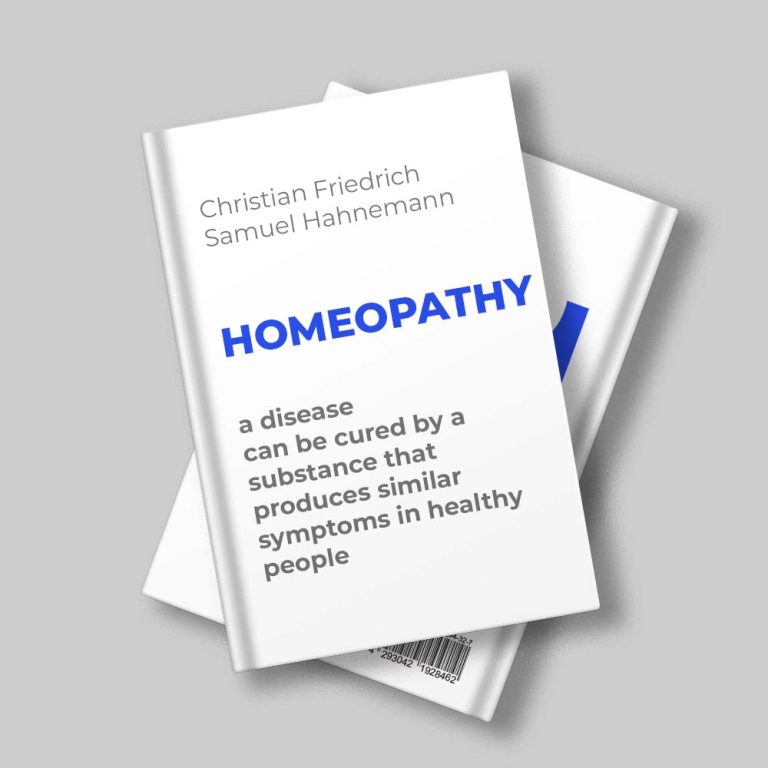About Clinic
Who is Doctor Majitha
Founder and CEO of Dr. Majitha's Homoeo Medicare!
- Over a decade of successful practice in Kerala.
- Pioneered virtual treatments and telemedicine in 2015, connecting with patients worldwide.
- International Case Contest winner, showcasing clinical proficiency and patient dedication.
- Completed accredited course “A Homoeopathic Approach to Autism” by Dr. Luc De Schepper.
- Certified in Health Care Quality Improvement, ensuring top-notch patient care standards.
- Holds a Master of Clinical Hypnosis (MCH) from the Academy of Hypnosis and Alternative Medicines.
- Member of Homoeomirror, completing an 8-month training program in Classical Homoeopathy.
- Empowered to create tailored treatment plans for individual patients.
Dr. Majitha Suhail: Your Trusted Classical Homeopath
Discover the driving force behind DR. Majitha’s Homoeo Medicare – Dr. Majitha Suhail, an accomplished homoeopath with a passion for classical healing.
Qualifications and Expertise
- Graduated from Government Homoeopathic Medical College, Calicut.
- Mentorship under Dr Veneeth Sidharthan(a distinguished classical homoeopath)
- Exceptional skills in treating paediatric cases and female disorders.

Qualifications
We are passionate in Helping you

Master of Clinical Hypnosis (MCH)
Academy of Hypnosis and Alternative Medicines

Graduation
Government Homoeopathic Medical College Calicut

Interactive Course
A Homoeopathic Approach to Autism by Dr. Luc De Schepper
Our Vision
Empowering through Classical Homeopathy. We ignite innate healing with unwavering commitment. Merging tradition and insight, our practitioners guide a transformative journey for body, mind, and spirit, where natural healing flourishes.
Our Mission
Our mission is to provide personalized, holistic, and effective homoeopathic treatments that stimulate the body's innate ability to heal itself. We strive to educate and empower our patients to embrace natural remedies, promoting balance, vitality, and lifelong wellness.
Core values
Holistic Approach
We treat the individual as a whole, addressing physical, mental, and emotional aspects to achieve lasting healing.
Personalized Care
Every patient is unique. We tailor treatments to each individual’s specific needs and health goals.
Natural Healing
Harnessing the body’s inherent healing mechanisms, we offer safe and non-invasive solutions.
Empowerment
We educate patients about their health, enabling them to make informed decisions for their well being.
Compassion
Our team of experienced practitioners approaches each patient with empathy, understanding, and kindness.
Evidence-Based Practice
Our treatments are rooted in classical homoeopathic principles and supported by ongoing research.
Why Choose Homeopathy
Classical Homoeopathy and Polypharmacy are two different approaches within the field of homoeopathy, each with its own philosophy and practices.
Homoeopathy is a scientific and logical approach to treatment that is based on the eternal laws of nature. It focuses on strengthening the body’s defense mechanisms to promote healing and a healthy life. Despite facing various challenges, it has become the second most preferred therapy worldwide, with its popularity increasing day by day.
Homoeopathy was discovered about 250 years ago by a German physician named Dr. Samuel Hahnemann. It is a therapeutic system of medicine based on the principle of “similia similibus curentur,” which means “like cures like.” In homoeopathy, medicines are selected based on the similarity of symptoms between the patient and the proven symptoms of the medicine on healthy individuals. These medicines are prescribed in highly diluted forms.
Homoeopathy is often referred to as a holistic system of medicine because it considers the individual as a whole rather than just focusing on the disease. In other words, it treats the person in the disease, not the disease in the person. For instance, if a patient is experiencing anxiety and digestive issues, conventional therapies might address these problems separately. However, in homoeopathy, the anxiety and digestive issues would be considered as interconnected aspects of the patient’s overall well-being. The remedy chosen would be based on the unique combination of symptoms, addressing both the mental and physical aspects simultaneously. This comprehensive approach is what makes homoeopathy a holistic treatment.
By using a holistic approach, homoeopathy addresses the underlying factors contributing to a person’s health issues, considering their unique personality traits and individual symptoms. This personalized approach sets homoeopathy apart from other medical systems and contributes to its effectiveness and growing popularity.
In summary, homoeopathy offers a scientific and logical approach to healing, based on the laws of nature. Its holistic nature considers the person as a whole, taking into account their physical and mental well-being. As a result, homoeopathy provides personalized treatment that aims to address the root causes of health issues, making it an excellent choice for those seeking natural and effective healthcare solutions.
Classical Homoeopathy vs Polypharmacy
Classical Homoeopathy:
Classical homoeopathy follows the principles laid out by Samuel Hahnemann, the founder of homoeopathy. It is based on the idea of “like cures like” and the use of highly diluted substances to stimulate the body’s self-healing abilities. In classical homoeopathy, a single remedy is chosen based on the individual’s unique symptoms, temperament, and constitution. The goal is to find a remedy that closely matches the totality of the person’s symptoms and addresses the underlying cause of the illness.
Polypharmacy in Homoeopathy:
Polypharmacy in homoeopathy involves the use of multiple remedies simultaneously or in quick succession to treat various symptoms or conditions. Some practitioners may use this approach to address multiple symptoms they believe are interconnected. However, this approach is debated within the homoeopathic community. Traditionalists argue that using multiple remedies can complicate the healing process and make it difficult to assess the effects of each individual remedy.
Pros and Cons:
Classical homoeopathy is often appreciated for its individualized approach, focusing on the person as a whole rather than just the disease. It aims to stimulate the body’s innate healing responses and considers mental, emotional, and physical aspects. On the other hand, polypharmacy can be seen as a way to address complex or overlapping symptoms, but it runs the risk of creating confusion in tracking the effects of each remedy.
Overall Classical homoeopathy has benefits over polypharmacy; in terms of its holistic perspective, no side effects, and a focus on addressing the root cause of the disease.
Why LM Potency Medicines For Treatment?
Advantages
LM Potency, is the most advanced medicinal system developed by Dr. Samuel Hahnemann. It offers a revolutionary approach to homeopathic treatment, providing unparalleled benefits and empowering patients to experience rapid recovery from various ailments. What sets LM Potency apart from other scales of potency, such as the Decimal Scale (x) and Centesimal Scale (c), is its unique dilution factor of 1/50,000. This innovative technique involves serial agitated dilutions of homeopathic medicines, resulting in a potent and highly effective form of treatment.
So, why did Dr. Hahnemann introduce LM Potency? He discovered that some patients experienced sensitivity and aggravation even with higher potencies in the Centesimal Scale. Additionally, cases with persistent pathology often required frequent repetition of doses, which was not ideal with Centesimal doses. To address these challenges, Dr. Hahnemann began diluting globules in water and administering a part of the liquid as a dose. These experiments led to the development of LM Potencies, which have become a treasure in the homeopathic system for their ability to expedite the healing process.
Advantages
LM Potencies are the most potent form of homeopathic medicines, delivering powerful healing actions to address a wide range of conditions.
Unlike other potencies, LM Potencies are gentler on the system, minimizing the risk of medicinal aggravation. Patients can experience relief without exacerbation of existing symptoms.
With LM Potencies, frequent repetition of doses can be tailored according to the intensity of the disease. This ensures optimal treatment outcomes and a faster recovery process, even for long-acting medicines.
LM Potencies simplify the process of observing patients after medication administration. This enables healthcare practitioners to closely monitor progress and make necessary adjustments to the treatment plan.
LM Potencies can be safely administered, even in the most critical and life-threatening conditions. Patients can benefit from the potent effects of homeopathy without any fear.
LM Potencies excel in providing swift relief and healing, making them highly effective in treating both acute and chronic diseases. Long-standing chronic conditions can be resolved more quickly using this scale.
In cases of mental illnesses, LM Potencies offer a smooth and holistic approach to healing, addressing the underlying causes and promoting overall well-being.
FAQ
1
What is Individualization in Homeopathy?
Individualization is a process in homeopathy where an individual is separated from other people (depending on his symptoms) suffering from the same pathology. Eg: In a family with three members suffering from malaria, their symptoms may vary. One may feel thirsty, another craves sour foods, and the third experiences fear. Homeopathy considers these uncommon symptoms in selecting the appropriate remedy
2
What are Homeopathic Remedies?
Homeopathic remedies are highly diluted substances derived from natural elements in the vegetable, mineral, and animal kingdoms. They are prepared in a special way called potentization.
3
How does a Homeopathic Remedy affect the organism?
Homeopathic remedies act by strengthening and enhancing the natural immunity of the organism.
other queries
No, Homeopathic Remedies are not dangerous because they are highly diluted.
No, Homeopathic Remedies are not addictive.
Homeopathic Remedies should be stored in a dry place away from the sun and strong perfumes. They should not be stored in refrigerators.
Yes, Homeopathic treatment can be combined with other forms of medical treatment.
The small sugar pills (globules) used in homeopathy are simply vehicles for the medicine. There are over 2500 different medicines in homeopathy, and the homeopath selects the perfect remedy for each individual case and prescribes it on these pills.
Potentization is the method of preparation of serial dilutions in homeopathy. It involves a stepwise dilution of the medicine, where the quantity decreases but the quality increases. Different scales of potentization, such as centesimal, decimal, and 50 millesimal, are used.
Homeopathic medicines are selected based on symptom similarity. To find the right remedy, a homeopath requires an in-depth understanding of the patient’s personality traits and details of all symptoms.
Homeopathy treats the person in the disease, considering the organism as a whole. Mental state, along with physical problems, is taken into account during the selection of remedies. This holistic approach distinguishes homeopathic treatment.
Constitutional treatment in homeopathy considers the individual’s hereditary predispositions and the influence of the environment. It involves prescribing the remedy based on the person’s mental, emotional, social, and physical aspects.
Homeopathic medicines are not inherently slow in action. However, people often turn to homeopathy when diseases become chronic, which naturally requires more time to cure. In acute diseases, homeopathic medicines can lead to quick recovery, sometimes faster than contemporary medical treatments.
Homeopaths generally do not prescribe steroids because homeopathic medicines are sweet in taste, while steroids are bitter. Chemical testing can be done to check the presence of steroids in medicines.
Allopathy aims to treat specific parts/systems, while homeopathy considers the person as a whole. Allopathy gives little importance to mental symptoms when treating physical pathology, while homeopathy follows a holistic approach, considering all aspects of the individual.
In homeopathy, medicines are given in highly diluted form, whereas in Ayurveda, medicines are given in crude form. Homeopathy works on the energy level, while Ayurveda works on the organic level. Homeopathy prescribes medicines producing similar symptoms, while Ayurveda often prescribes medicines producing exactly opposite symptoms in crude form.
